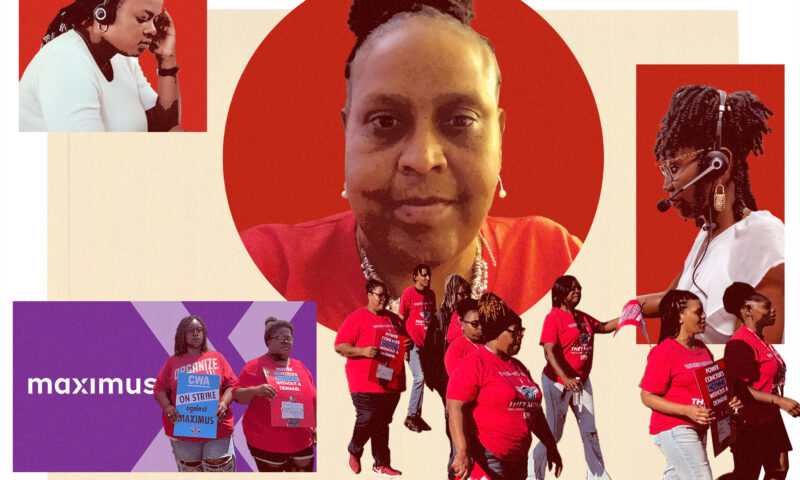

Workers cite low wages and disrespect at work; union alleges illegal union-busting.


From Waffle House to Dollar General to Burger King, record heat is spurring workers to organize.
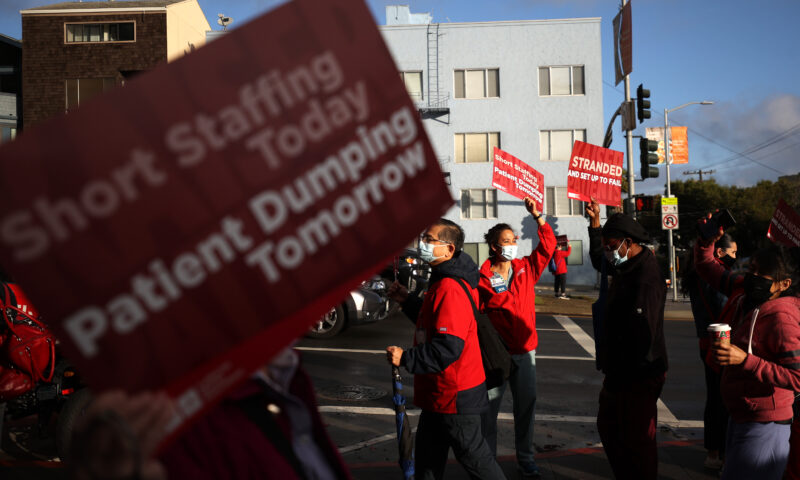

Once known for strong employee-management relations, its workers now say staffing and pay need to rise to attract and retain the staff Kaiser needs.
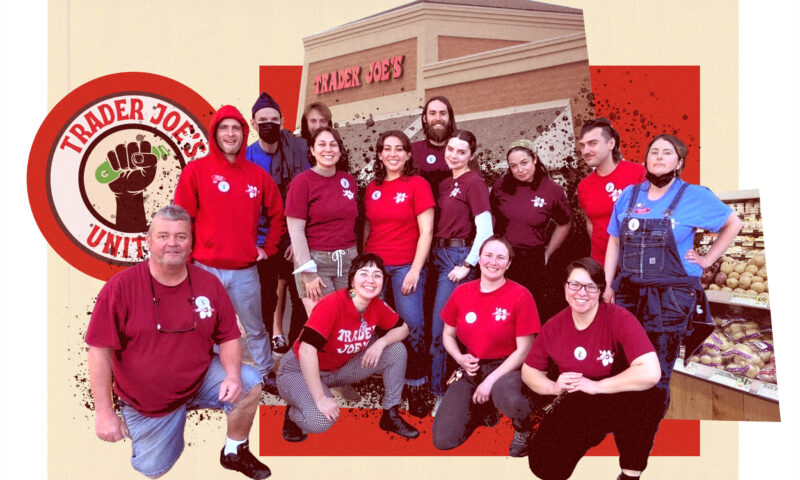
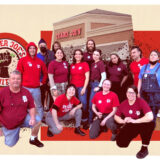
The friendly grocer’s staff are increasingly going union — and say the company is hostile to their efforts.
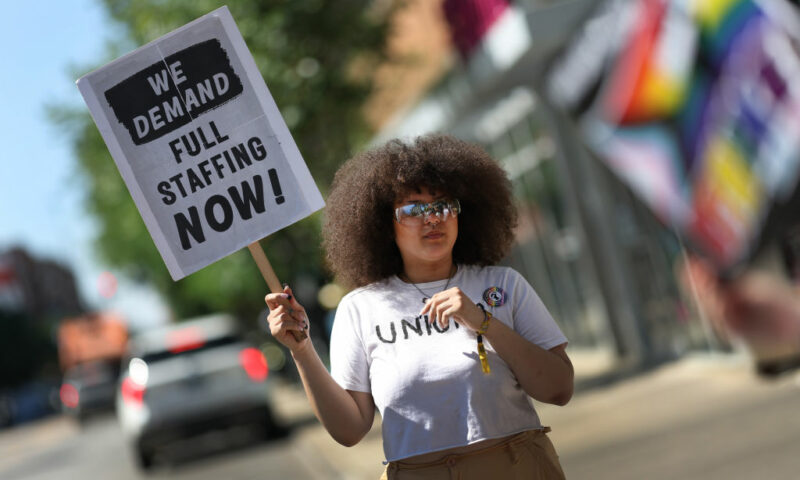
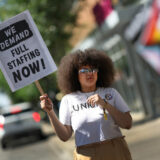
Unionizing is not against the law; but the law is against unionizing.
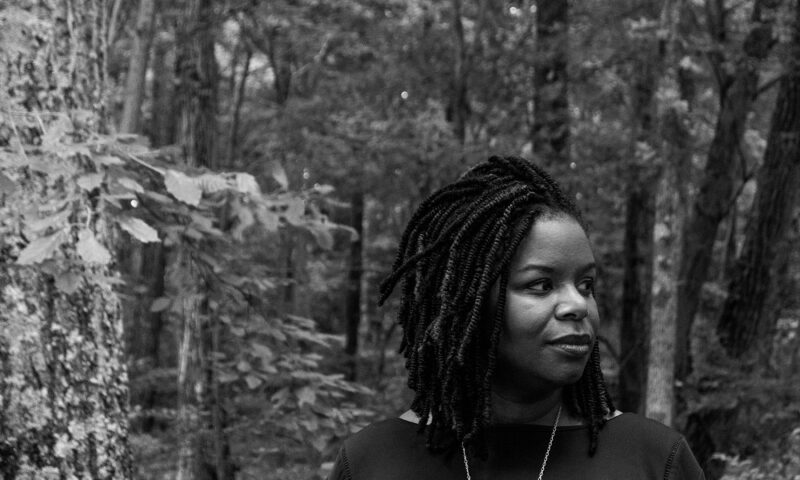

A scholar uncovers her family’s story, and America’s.
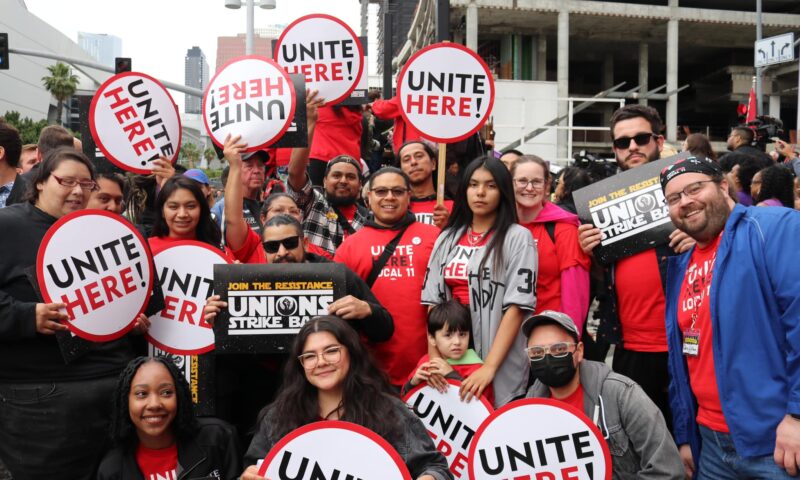
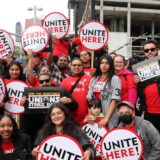
Reaching across diverse backgrounds and kinds of work, thousands of union members are sharing strategy and stories of the struggle to live and work in Los Angeles.
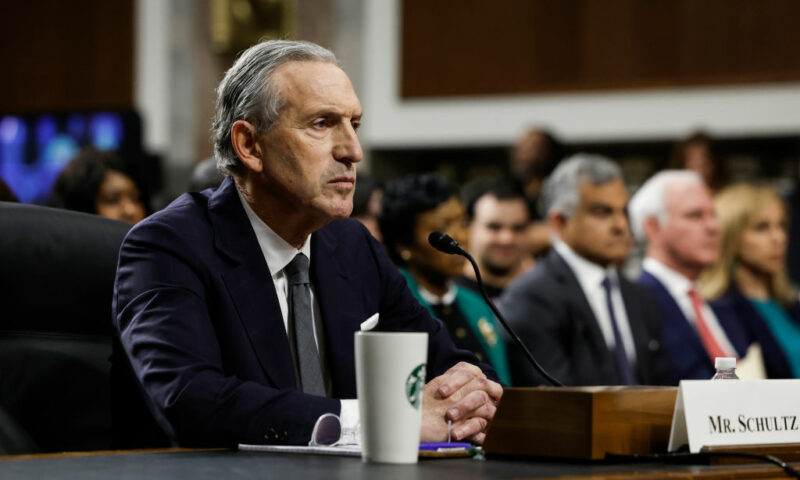

U.S. companies spend an estimated $433 million per year on union avoidance consultants, new report finds.


Nancy Feinstein and Carol Rothman first started organizing older women in 2016—a demographic they see as an under-utlized resource.
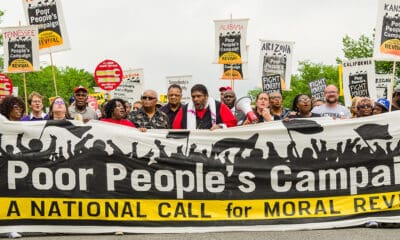
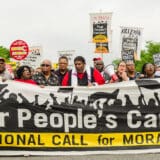
In the midst of a pandemic, Rev. William Barber’s June 20 March on Washington goes digital.
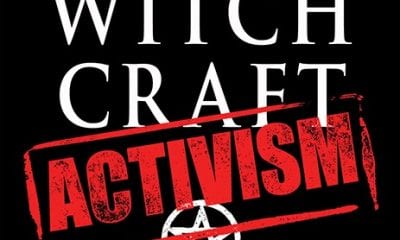
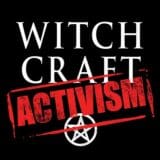
A new book offers practical tips on how to organize — and cast spells — for equality and the environment.
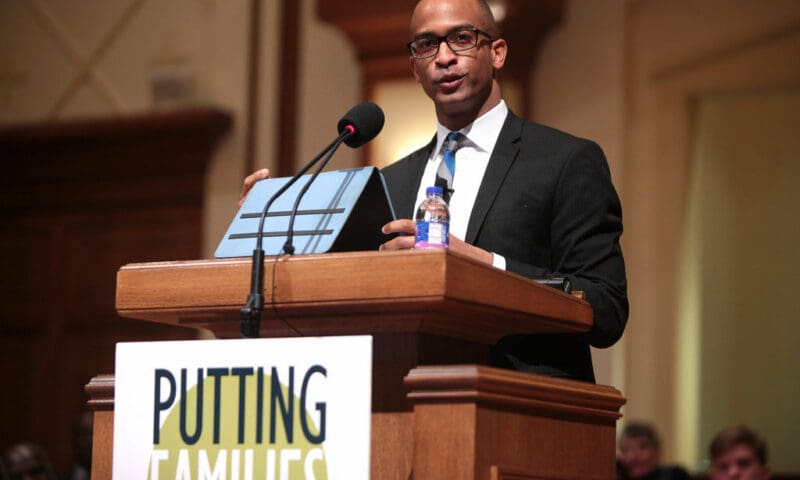
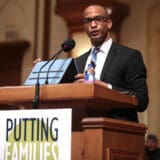
“Investigations are coming — there’s no question,” says Roosevelt Institute Fellow Dorian Warren. And not just investigations into Trump’s tax returns, but examinations of the harm federal agencies have been doing to America’s communities.

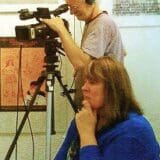
For Oneil Cannon, breaking the color line of L.A.’s lily-white printers’ union didn’t simply mean facing a night of scalding verbal abuse during his first union hall meeting – moments before it began he’d been refused service at knifepoint at a nearby restaurant. Jackie Goldberg says her activist’s DNA was shaped less by Berkeley’s celebrated Free Speech Movement than by a little-noticed women’s conference held the year before the U.C. campus erupted. Peter Douglas’ journey from the frozen roads of war-torn Poland to Redondo Beach’s balmy Esplanade led the father of California’s Coastal Act to become a “radical pagan heretic.”
These and more than 40 other reminiscences by Southern California social activists have been recorded by Julie Thompson and her husband, Brogan de Paor, as part of an ambitious yet shoestring-funded project called the Activist Video Archive. So far the couple’s subjects have also included Haskell Wexler, Cheri Gaulke,
» Read more about: Setting the Record Straight: L.A.’s Activist Video Archive »
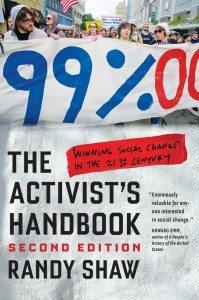
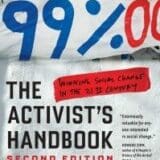
Last Saturday’s commemoration of the 1963 March on Washington spotlighted the power of grassroots activism. But it was no exercise in nostalgia. Activists are pushing for social change across the nation, and I discuss dozens of these campaigns in my new book, The Activist’s Handbook, Second Edition: Winning Social Change in the 21st Century, officially released today by UC Press. The book thoroughly revises and updates the 1996 edition, which the late Howard Zinn praised as “enormously valuable for anyone interested in social change.” The new edition adds my analysis of the strategies used by social movements around immigration reform, gay and lesbian rights, the Keystone XL Pipeline, school “reform” and other campaigns that really took off in the past decade.
While some believe the past 15 years have weakened the power of grassroots activism against big moneyed interests, I disagree. In fact, in writing the new book I realized that activism has increased since the original edition,
On the most recent Moyers and Company, Bill Moyers turned his attention to the ways underdog communities have organized themselves to win economic victories – in often hostile political environments. Moyers first spoke with Marshall Ganz, the veteran civil rights and United Farm Workers organizer; he then interviewed Madeline Janis, co-founder of the Los Angeles Alliance for a New Economy, and affordable-housing activist Rachel LaForest.
Ganz, a professor at Harvard’s Kennedy School of Government, based his organizing techniques on the moral teachings of his father, who was a rabbi, and on the need to transfer personal narratives onto organizing campaigns. Janis and LaForest have combined traditional organizing techniques with the practical need to adapt to fluid local situations.
As Janis told Moyers:
“You have a struggling housekeeper in a hotel who cleans 25 rooms in a day and barely puts food on the table. The idea of her being able to fight for better working conditions — a union in her hotel,
» Read more about: LAANE’s Madeline Janis Appears on “Moyers & Company” »


One of the most exciting and inspirational aspects of coalition building is seeing the success and victories that people get when they come together for the common good of their community. The time and effort that can go into the work is nothing compared to the feeling of victory once the campaign has been won, and the people and community feel the victory themselves.
Unfortunately, groups that have never worked together are often times unwilling to do so because of longstanding suspicions or differences, so building coalitions around economic enhancement projects, political campaigns, religious events and community change is a very hard thing to do. However if you apply some strategy rules to the process you can build a great coalition.
First, you have to believe in what you are trying to build together – and also believe that it can be built. You can’t waste time fighting a cause that is not winnable.
» Read more about: The Art of Coalitions: Building Teams of Rivals, Not Enemies »
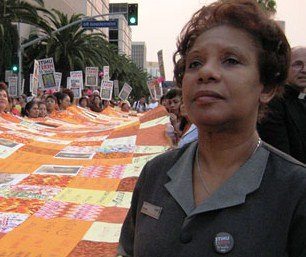
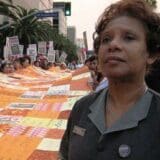
As I embark on a new chapter in my life as President and CEO of the Southern Christian Leadership Conference of Southern California, I’d like to reflect here upon some of the lessons I have learned while working at the Los Angeles Alliance for a New Economy for nearly 10 years. If we are going to help workers overcome the oppression they face on their jobs, and if we are going to work with communities to help them to become healthy and viable, then we have to have a dynamic plan and strategy that will lead to victory. Simply put in LAANE language, we must have a “strategy to win.”
For nearly 20 years LAANE has utilized this strategy to win to gain victories that have improved the lives of 350,000 people nationwide. It has engaged labor partners, environmental and community groups, and faith-based organizations, to score victories in and around Los Angeles.
» Read more about: The Calculus of Organizing: A Strategy To Win »
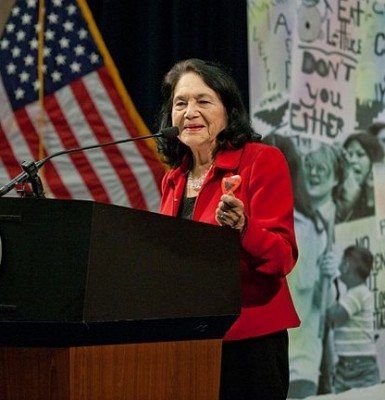
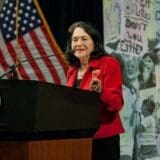
Dolores Huerta, co-founder of the United Farm Workers and long-time activist who has lent her strength to countless social and economic justice fights, received the Presidential Medal of Freedom from President Obama on Tuesday.
“Dolores was very gracious when I told her I had stolen her slogan, ‘Si, se puede.’ Yes, we can,” Obama joked during the ceremony. “Knowing her, I’m pleased she let me off easy, because Dolores does not play.”
He explained that throughout Huerta’s work, “She has fought to give more people a seat at the table. ‘Don’t wait to be invited,’ she says, ‘Step in there.’”
“I was humbled, thrilled, and surprised. I never expected to be nominated,” Huerta, 82, told the Daily Beast about the honor. She said the medal highlights the power of “organizing at the grassroots level,” and “how important that is in keeping our democracy alive.”
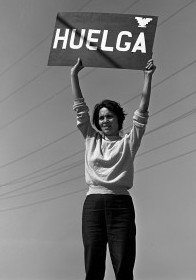
That activism,
» Read more about: Dolores Huerta Honored with Presidential Medal of Freedom »